Ivan Petkov
There is a rarely changing ranking and it is that of the richest people in the world. William Henry Gates III, or as he is known, Bill Gates, a co-founder of software giant Microsoft, has been literally subscribed to the first place in it in recent decades. He is one of those billionaires who have earned their fortune rather than inheriting it.
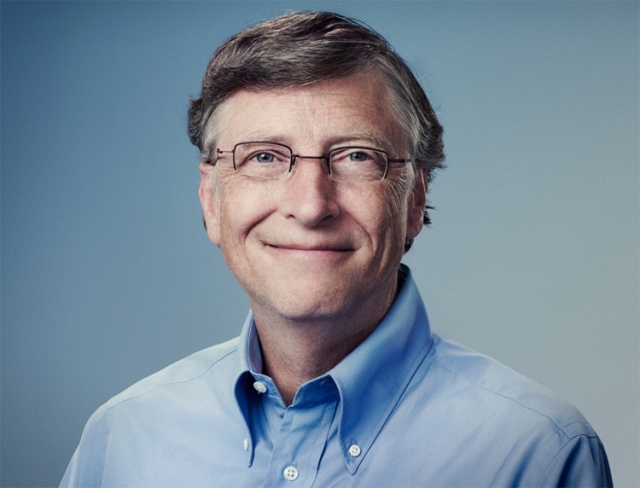 Bill Gates
Bill Gates
In January 2000, Bill Gates left the position of CEO of Microsoft and, together with his wife, Melinda, they founded a charity foundation aimed at giving up half of their fortune to charity. Financial genius and philanthropist Warren Buffett had been attracted into this endeavour too. Together, they were able to convince another 100 of the richest people on the planet to participate in the venture. For this purpose, every year, Bill Gates sells part of his shares in Microsoft and analysts predict that if he continues at this rate, he will come out of the company by the end of the decade.
The future of philanthropist may seem quite bright for Bill Gates, but the challenges to the company founded by him are greater than ever. Microsoft, being the sole leader in operating systems for desktop computers and having a huge market share in the corporate sector, has lagged behind with regard to the development of hardware devices as well as of mobile operating systems and related services. To put it in simple terms, the company has been late in presenting an operating system for smartphones and tablets, which is why its competitors in the face of Apple and Google are dominant in these devices.
After a long delay and the initial unsuccessful attempts to seriously interfere in the distribution of this market, Microsoft has decided to completely change its successful model and move towards a closed model similar to that of Apple. The company wants to control every component that builds the PC-ecosystem.
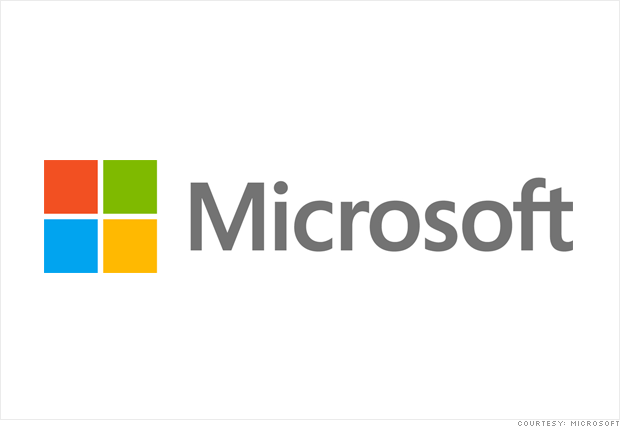
So far, Microsoft has worked with its partners, which produce the hardware running the Windows operating system. During this year, the software giant has made it clear that it wants to control the hardware and the application store from which the applications are being installed on each device such as smartphone, tablet, laptop or desktop computer. In terms of the decline in the sales of traditional computers, this is a risky move and Microsoft partners are not too pleased with this course of developments.
The partners of the company from Redmond are not the only dissatisfied parties. Rumours and analysts claim that the approval of CEO Steve Ballmer in Microsoft was critically low. Such was the investors’ perception as well. Ballmer is only the second person at the head of the company after the withdrawal of Bill Gates. After several months of more overt and hidden internal "wars", Steve Ballmer announced in August that he would leave his post and, over the next year, the company will seek a person to replace him. He has headed the company for 13 years now. It is interesting to note that Ballmer is among the few billionaires who have earned their fortune without having their own business.
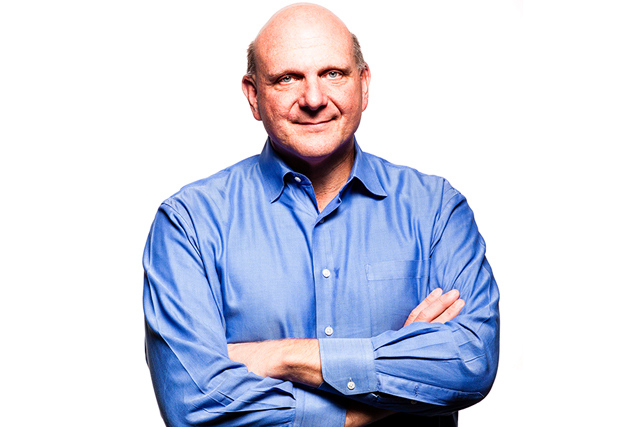 Steve Ballmer
Steve Ballmer
The search for a manager to restructure the company and make it a leader again has become an epic that has been able to combine all these considerations into a boiling pot of opinions, strategies, moves, competitions... However, we are talking about the future of one of the largest and most expensive companies in the world and about hundreds of billions of dollars!
Internal contradictions while selecting the successor
The search for a new manager of Microsoft shows the differences in the board itself as regards to the development to which the software concern should turn and the requirements which the next manager should meet.
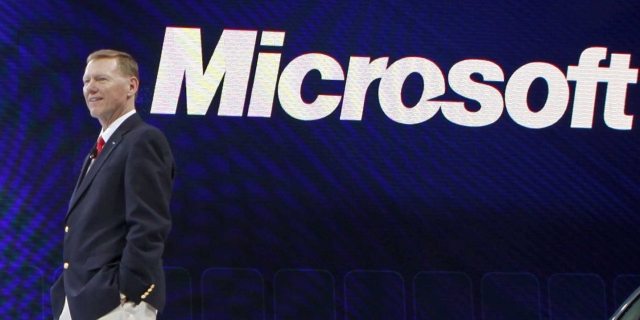 Alan Mulally
Alan Mulally
The external candidates include Alan Mulally, CEO of Ford, Mark Hurd, president of Oracle, and Stephen Elop, who has left Nokia and, after the sale of the Finnish mobile business, will join the software concern at the beginning of next year.
The list of candidates reflects the struggle of the board in connection with the following issue: Should the future number one be a technology expert, able to give a boost to Microsoft in the development of innovative products, or should he rather be a professional who can control a large and widely spread company? This fundamental decision will determine the immediate future of the software group and its direction, namely whether the focus will be on new technologies, which will enable the company to compete with Google and Apple, or on pushing the concern to work as efficiently as possible.
The board of Microsoft is facing the historically significant task of finding just the third CEO in its 38-year history and, perhaps, the first one who is not connected with the company's founder.
Other outsiders who are being considered for the top job are Charles Phillips, a former president of Oracle, who is now running the business software company Infor, and Paul Maritz, a former manager at Microsoft, who is currently the head of the specialized business software company Pivotal Labs.
Among the present managers, the commission has also interviewed Tony Bates and Satya Nadel as to whether they would undertake to replace Ballmer. Not all the people are serious candidates for the position however. Mark Hurd, for example, has stated that he wants to remain in Oracle.
The managers at Microsoft, who have been charged with the search for a new head, are aware that the best option is for Ballmer’s successor to be presented as soon as possible. The board hopes that it will be able to take the decision within four to six months, or by the end of this year or early next year. Ballmer announced his withdrawal in August. He will withdraw within a year, or, when the commission finds his successor.
Ford’s Alan Mulally stands out as one of the most interesting candidates. He is 68 years old and has no experience in information technologies. The former manager of Boeing, who owns a huge house in the Seattle area, has close ties with Ballmer personally and he had consulted him many times, most recently in connection with the radical reorganization of the concern in July.
Ballmer himself strongly backs Mulally as stated by people familiar with the search process. However, it is not clear how much Ballmer can influence the nine-member board.
Meanwhile, John Thompson, head of the selection commission of a new CEO, and others of its members have met with leading stakeholders to find out their views on the future head. A number of major shareholders are concerned about the development of the company as its stock price fell about 40% during the 14-year management of Ballmer. In August, Microsoft had indicated its willingness to take on board, from the beginning of next year, a representative of the reactionary shareholder ValueAct Capital Management.
The signals, on the part of the major shareholders, show that they would support the choice of a highly experienced outsider, like Mulally. The reason, according to those familiar with the developments, is the hope that this type of manager will "thin out" the company, divert resources from less profitable areas and increase the payouts to shareholders, in the form of share buyback or dividends.
The case of "Bill Gates"
Three of the top 20 investors in Microsoft are lobbying for the board to force Bill Gates to leave his post as chairman of the software company as stated by sources familiar with the case on condition of anonymity. There is no indication that the board of Microsoft will satisfy the desires of the three investors who jointly hold more than 5 % of the shares of the company whereas Fates holds 4.5% in it and is its largest individual shareholder.
Even when the news came out that Ballmer withdrew, there were opinions that Bill Gates should return as the head of the company. Gates himself has repeatedly stated that his withdrawal from the active management is final, although he is still closely associated with Microsoft. While Ballmer was managing the company, Gates had repeatedly stood behind him and supported him. After each crisis, when there were inclinations that he would return, the founder of the company gave interviews and publicly supported his successor.
Why are the investors against Bill Gates at present? The first reason lies in what I have mentioned previously, namely that we can assume that, more or less, Gates was dictating the former course followed by the company, even though he was staying out of the limelight. Secondly, the shareholders seek someone who has a new and different perspective on the development of the company so that it can begin to pursue a policy consistent with the new conditions.
Last but not least, Bill Gates is focused on its foundation and its charitable activities. On top of that, in one of his last interviews, he said that "technology will not save the world".
Bill Gates considers himself a technocrat but does not believe that technology will save the world. Or at least he does not believe that it will solve some of the pressing problems facing humanity, such as diseases, poverty and the lack of opportunity and despair they cause. "I love technology but if we want to improve our quality of life we have to deal with simple problems such as hunger, for example," Gates said in an exclusive interview with Richard Waters for the Financial Times.
The feeling that Bill Gates is drifting away from the problems of the company has intensified.
The short list
After numerous speculations, the list of Ballmer’s successor is getting shorter. According to insiders, it now contains the names of Alan Mulally, executive manager of Ford, Stephen Elop, former CEO of Nokia, Tony Bates, a Microsoft vice president and Satya Nadel, head of the company's division of cloud services. It is believed that there is at least one employee of the US technology giant as well as some candidates whose names are not mentioned. The initial list of candidates included the names of more than 40 people but the board has reduced the list to 10 names.
The company has even talked with Elop who has returned to Microsoft after the technology giant has bought Nokia’s mobile unit for $7.2 billion. It is also believed that Microsoft has contacted 67-year-old Mulally but the CEO of Ford has shown no interest in the position. It is expected that the company will announce the name of its subsequent manager by the end of the year.
Stephen Elop
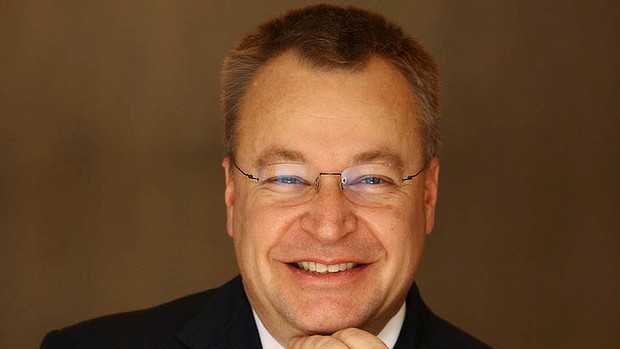 Stephen Elop
Stephen Elop
One of the most likely candidates for the position of CEO of Microsoft, Stephen Elop, intends to break the tradition of Microsoft and to focus the company on the development of popular office applications such as Word, Excel and PowerPoint for the widest range of devices, including Apple smartphones and tablets, as three independent sources familiar with the ideas of the manager stated before Bloomberg.
A source told Bloomberg, on condition of anonymity, that Elop was planning to deviate from the strategy of Microsoft, according to which office applications should be a means to increase the demand for Windows operating systems and Windows Phone.
The initial refusal regarding the development of Office for iOS and Android has not helped Microsoft to stimulate the demand for its platforms. In the summer, the company launched a version of the office suite for iPhone and for smartphones using Android. To access these versions users must have a subscription to Office 365.
There have also been reports that Stephen Elop, as a possible CEO, will get rid of some units in the structure of Microsoft, which do not fit into the new strategy, which would affect the Bing search engine and Xbox consoles first.
Stephen Elop worked at Microsoft from February 2008 to September 2010, as president of the Business Division, which is responsible for the development of Office and which generated 32% of the company's revenue in the fourth quarter.
Microsoft is at the crossroads. The selections of its new CEO will determine the main directions of its future development. There are a number of unknowns and the shareholders do not have a single opinion as to what kind of person they are looking for, namely, a technocrat or a top manager. It is only clear that the company needs to act quickly but not hastily. It has been late, missing many of the trends in the technology sector. Therefore, the actions its new head will undertake must be well considered, decisive and forward-looking, which is definitely not an easy task!